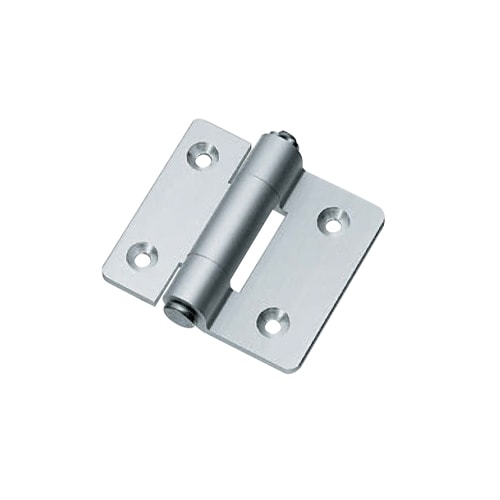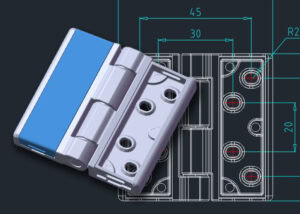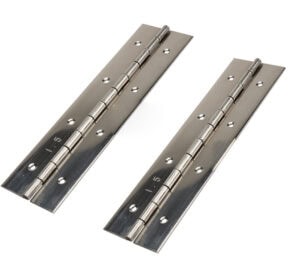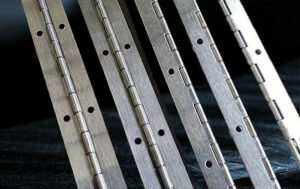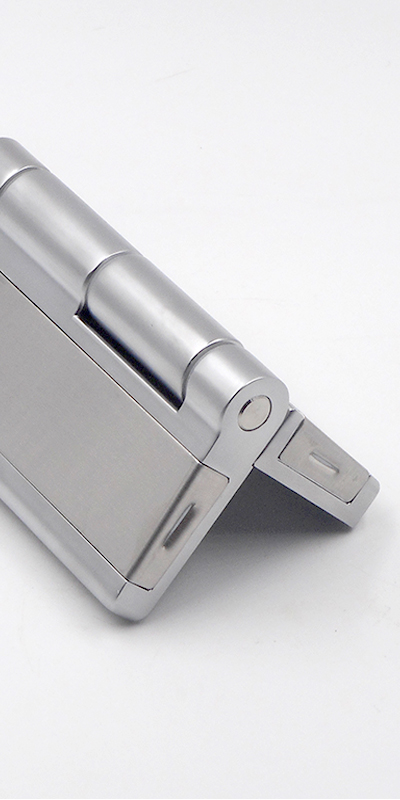When it comes to industrial manufacturing, selecting the right hinge material is crucial. Especially with aluminum hinges, understanding the factors that guide their selection can help in various industrial applications.
When selecting aluminum hinges for industrial applications, it is essential to consider various interconnected factors. These include understanding the load-bearing capacity to ensure the hinge can withstand the specific mechanical forces, the different finishes that can enhance performance, the main uses and customization possibilities according to industry-specific requirements, and the price and availability from different suppliers. Evaluating these factors collectively ensures that the chosen aluminum hinges will meet the unique needs and standards of the particular industrial scenario.
In the following sections, we will dive into various aspects of the hinges that you need to be aware of to make an informed decision.
What are Aluminum Hinges?
Aluminum hinges are mechanical bearing devices that connect two solid objects, allowing rotation between them. They are made from aluminum, a versatile and lightweight metal.
In the industrial sector, these hinges are commonly used for their unique properties. With a good balance of strength and flexibility, they are suitable for various mechanical applications, especially where weight and corrosion resistance are key considerations.
What are the Advantages of Aluminum Hinges?
The advantages of aluminum hinges lie in their unique material properties. Aluminum is a lightweight metal, allowing for easier handling and installation.
Moreover, aluminum offers excellent resistance to corrosion, making it suitable for outdoor or harsh environmental conditions in various industrial settings. Its ability to withstand wear and tear ensures a longer lifespan and reduced maintenance costs.
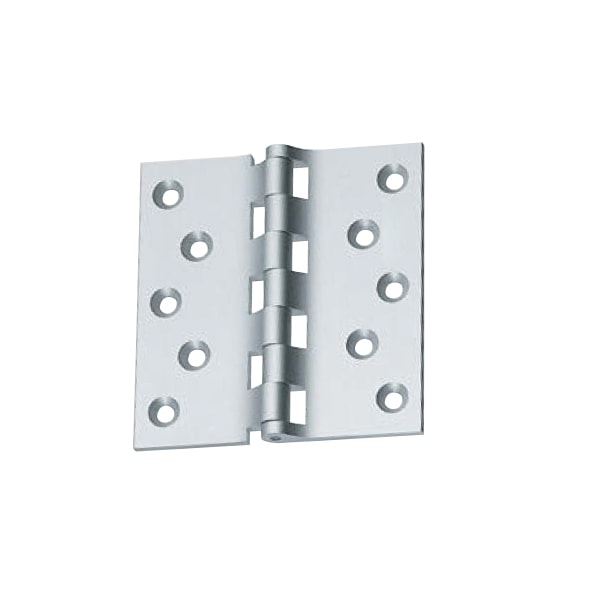
What is the Difference Between Aluminum Hinges and Stainless Steel Hinges?
Aluminum hinges and stainless steel hinges are two popular choices in the industrial manufacturing sector. Aluminum is known for being lightweight, whereas stainless steel is renowned for its strength and durability.
The choice between these two types depends on the specific application and requirements. For instance, if weight is a critical factor, aluminum may be preferred. Conversely, in applications requiring higher strength, stainless steel might be the better choice.
5 Factors to Consider When Choosing Aluminum Hinges
- Load-Bearing Capacity: Understanding the load-bearing capacity of the hinges is vital. They must withstand the mechanical forces in the industrial application they are used in.
- Finish Options: Different finishes provide various aesthetic and functional properties. From anodizing to powder coating, understanding these finishes aids in customization.
- Main Uses: Knowing the specific industrial uses of the hinges helps in selecting the right type and design.
- Customization Possibilities: Since industrial applications may require specialized designs, finding a factory that can customize the hinges is essential.
- Price and Availability: Cost and availability play a crucial role. Comparing different suppliers ensures the best quality and price.
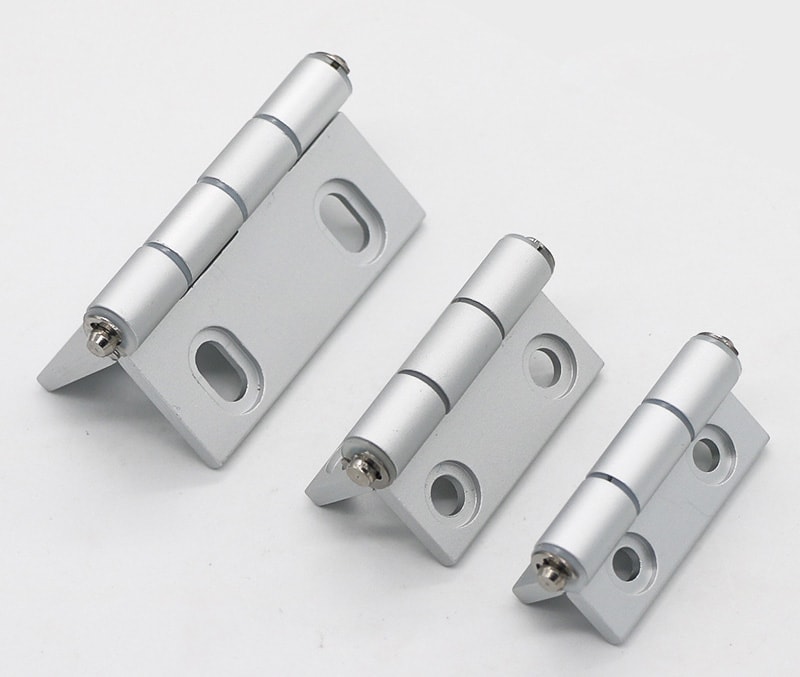
What is the Load Bearing Capacity of Aluminum Hinges?
The load-bearing capacity of aluminum hinges depends on their design and material grade. This attribute must be in line with the application’s requirements to ensure optimal performance.
For industrial applications, this means understanding the forces and stresses the hinge will be subjected to, and selecting a hinge with a suitable load-bearing capacity. Proper selection minimizes the risk of failure and ensures a longer operational life.
What are the Main Uses of Aluminum Hinges?
In the industrial sector, these hinges find application in various machinery and equipment. Their lightweight and corrosion-resistant nature make them suitable for a wide range of uses.
Some of the main uses include connection points in transportation vehicles, mechanical arms in manufacturing lines, and joints in robotic systems. The versatility of the hinges ensures their suitability for diverse industrial scenarios.
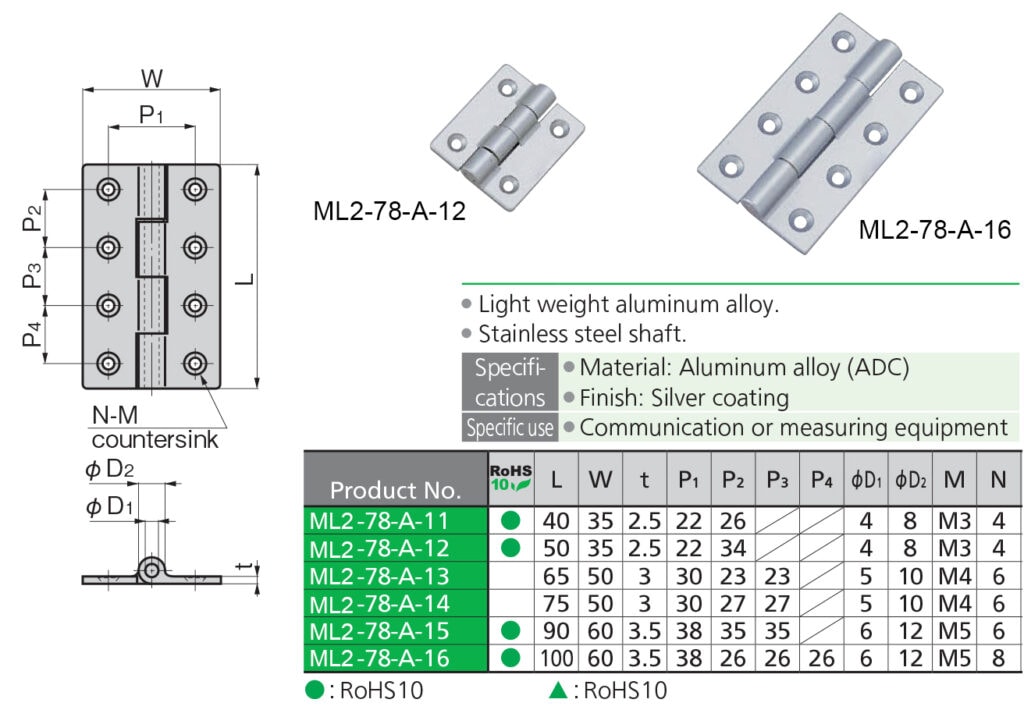
Can I do Different Finishes?
Different finishes can be applied to aluminum hinges to enhance their appearance or improve their performance. Common finishes include anodizing, painting, and powder coating.
Each finish offers unique benefits, such as increased corrosion resistance or a specific aesthetic appeal. It’s essential to understand these options and choose the right finish based on the application’s requirements in the industrial manufacturing sector.
How to Find a Factory to Customize Aluminum Hinges?
Finding a factory to customize aluminum hinges requires research and understanding of your specific needs. Look for manufacturers that have experience in the industrial sector and can offer customization services.
By partnering with a factory that understands your requirements, you can ensure that the hinges are designed and manufactured to your exact specifications, meeting all the necessary industrial standards and regulations.
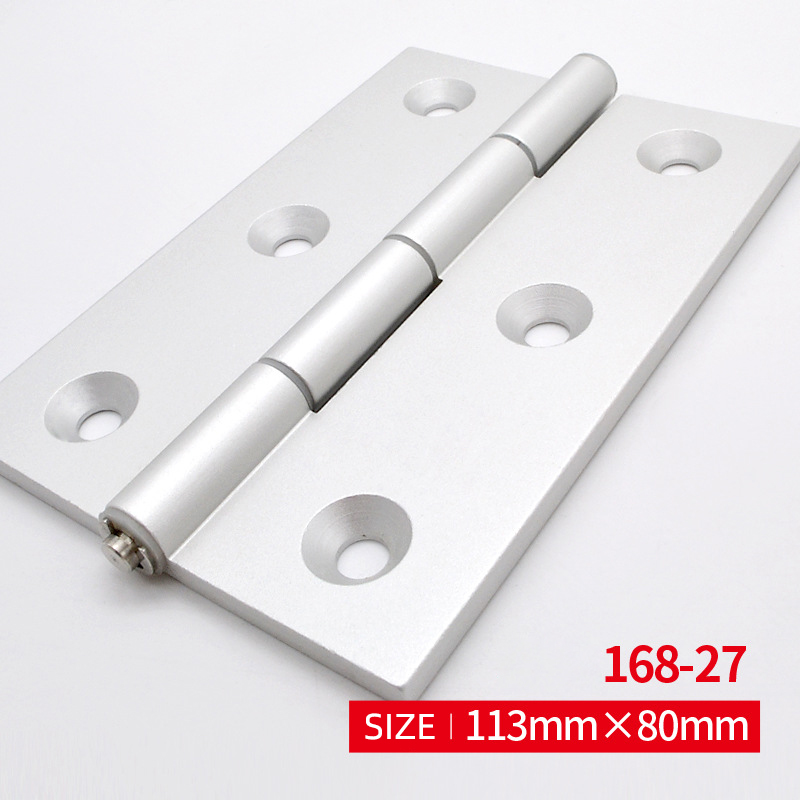
Conclusion
Choosing the right aluminum hinges is a critical decision in industrial manufacturing. By understanding the various factors such as load-bearing capacity, finishes, uses, customization possibilities, and differences with other materials like stainless steel, you can make an informed selection that best suits your specific application.
You might also be interested:

